2014: A Year in Review
2014 proved to be a busy and exciting one for the School. Here are some of the year’s highlights.
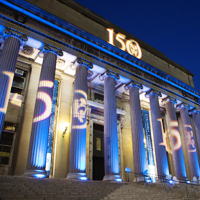
Columbia Engineering Celebrates 150 Years
The School's yearlong 150th birthday party included events such as the Engineering Icons series, the Senior Design Expo, and the year-ending symposium—Columbia's Engineering Renaissance: Foundation for the Future—and Founders Day Gala.
Read more:
.hideme { height: 1px; border: none } .noborder{border: none} .offscreen { height: 1px; width: 1px; position: absolute; overflow: hidden; top: -10px; }
| date | Headline | Photo |
|---|---|---|
| JAN 31 |
New York Times Taps Prof. Wiggins as Chief Data ScientistAccording to Wiggins, the Times is creating a machine learning group to help learn from data about the content it produces and the way readers consume that content. |
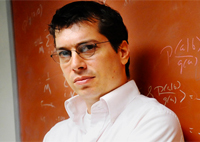 |
| FEB 10 |
Chips That Listen to BacteriaA research team led by Prof. Ken Shepard has demonstrated that integrated circuit technology, the basis of modern computers and communications devices, can be used for a most unusual application—the study of signaling in bacterial colonies. |
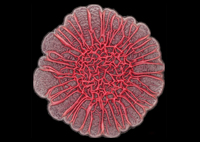 |
| FEB 27 |
AstroMike Evening Out of This WorldNASA Astronaut Michael Massimino BS'84 shared personal anecdotes and career highlights as the second guest of “Engineering Icons,” the School’s new series of conversations with game changers in engineering and applied science. |
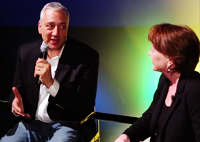 |
| APR 30 |
Columbia Engineers Grow Functional Human Cartilage in LabResearchers at Columbia Engineering have successfully grown fully functional human cartilage in vitro from human stem cells derived from fat tissue. Their study demonstrates new ways to better mimic the enormous complexity of tissue development, regeneration, and disease. |
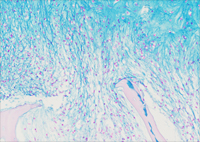 |
| MAY 8 |
Ultimate Show and Tell: Senior Design ExpoSixty-six innovative projects at Columbia Engineering’s inaugural Expo spotlighted students’ one-of-a-kind solutions to a wide range of engineering problems. |
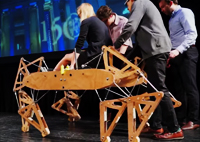 |
| MAY 28 |
Is It a Crow or a Raven? New Birdsnap App Will Tell You!Computer Science Professor Peter Belhumeur takes bird-watching to a new level in Birdsnap, a new iPhone app that is an electronic field guide featuring 500 of the most common North American bird species. |
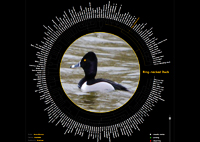 |
| JUN 12 |
Columbia Engineers Provide New Insight into How the Brain Regulates Its Blood FlowLed by Associate Professor Elizabeth M. C. Hillman, a Columbia team has demonstrated, for the first time, that the vascular endothelium plays a critical role in the regulation of blood flow in response to stimulation in the living brain. |
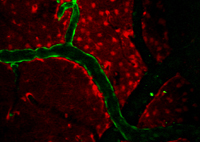 |
| JUN 18 |
Columbia Engineering Team Finds Thousands of Secret Keys in Android AppsJason Nieh, professor of computer science at Columbia Engineering, and PhD candidate Nicolas Viennot reported that they have discovered a crucial security problem in Google Play, the official Android app store. |
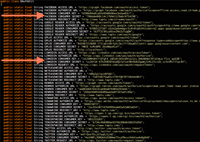 |
| JUL 16 |
Columbia Startup Lab in Full SwingLocated on the ground floor of the WeWork Soho West building on Varick Street, the new Columbia Startup Lab is home to 45 teams of Columbia entrepreneurs representing a range of ventures, from sports and fashion to technology and health. |
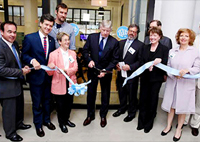 |
| AUG 18 |
New Tool Makes Online Personal Data More TransparentRoxana Geambasu and Augustin Chaintreau, both assistant professors of computer science, have developed XRay, revealing which data in a web account, such as emails, searches, or viewed products, are being used to target which outputs, such as ads, recommended products, or prices. |
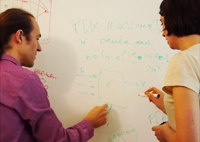 |
| OCT 15 |
Researchers Develop World’s Thinnest Electric GeneratorResearchers from Columbia Engineering and the Georgia Institute of Technology have created a unique electric generator and mechanosensation devices that are optically transparent, extremely light, and very bendable and stretchable. |
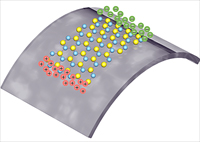 |
| OCT 16 |
Columbia Engineering Magazine Feature: Room for Innovation—School Opens New MakerspaceAt the newly opened Columbia Makerspace, students will have a dedicated place on campus to collaborate, learn, explore, experiment, and create prototypes. |
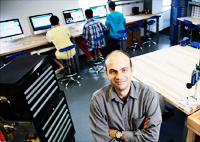 |
| OCT 17 |
Columbia Confronts the Ebola CrisisColumbia Engineering and the Mailman School of Public Health joined together to not only come up with rapid low-cost, real-time solutions to the Ebola crisis, but also engage the Columbia community to take action, collaborate, and have an impact on this critical global issue. Read more: Columbia Design Challenge: Confronting the Ebola Crisis |
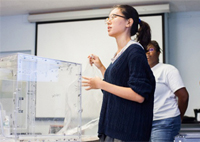 |
| DEC 16 |
Startup Seamless Devices Launches from Prof. Peter Kinget’s LabSeamless Devices aims to address critical limitations faced by semiconductor technologies striving to meet the demands of performance and power efficiency required by the next generation of electronic devices and sensors. |
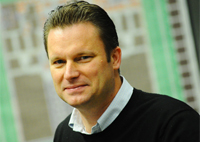 |
